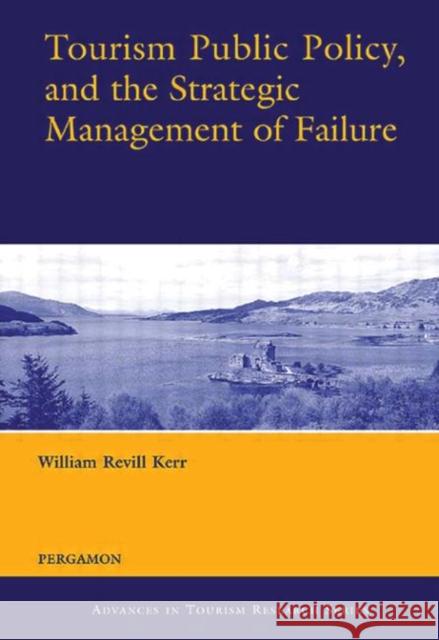Tourism Public Policy, and the Strategic Management of Failure » książka
Tourism Public Policy, and the Strategic Management of Failure
ISBN-13: 9780080442006 / Angielski / Twarda / 2003 / 312 str.
The development of tourism and tourism public policy, and the strategic management of failure of tourism to realize its commercial potential are all considered in this book. The particular salience of this research lies in the fact that it has been conducted during an interesting (politically) and volatile (globally) period for the world's tourism industry. Increasing competition, economic, and environmental issues combined with the continued threat of terrorism, and instability in the Middle East, necessitated governments assessing and redefining their tourism public policies. How they approached this in the late nineties and new Millennium is reflected in the first part of the book. late nineties were focused, concentrated, and mutated by globalization, political devolution, and the restoration of the Scottish Parliament in 1999. In consequence tourism and economic development powers were devolved to Edinburgh from Westminster. However, other powers such as fiscal and employment policies which impacted greatly on tourism were reserved to Westminster, a complex situation which the book has also set out to explain, as it does the Scottish Parliament's inability to influence such powers. Scottish tourism was confronted by significant challenges e.g., the foot and mouth epidemic, the terrorist atrocities in the USA, Indonesia, and Kenya, the combination of which for a short but crucial period virtually decimated North American tourism trade to Europe, and of course recession. More recently there has been the massive downturn in the stock market which has impacted negatively on consumer confidence, and war in Iraq. tourism public policy exists. Nor does any similar account exist of the impact of devolution or, indeed, of the combination of devolved and residual reserved powers on tourism public policy. This research, therefore, will stand uniquely as a study not only of tourism public policy and of countries such as Scotland's strategic management of failure to realise its commercial potential, but also of the impact of public policy on tourism brought on by devolution. It is also hoped that it will serve as a perspective of the impact of devolution of tourism in Scotland during the first four year period of the parliament while contributing further to the academic understanding of tourism public policy. This book is intendef for advanced undergraduate students of programmes in tourism, geography and economics; postgraduate students of tourism; the academic research community; and practitioners in natural tourism organizations and tourism policy units











